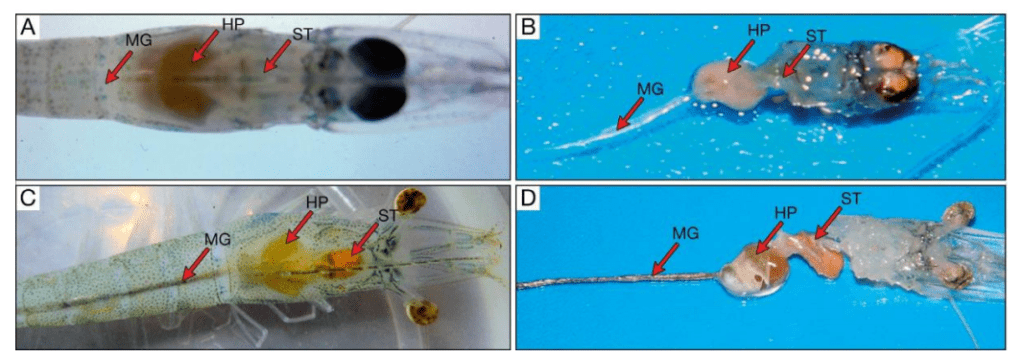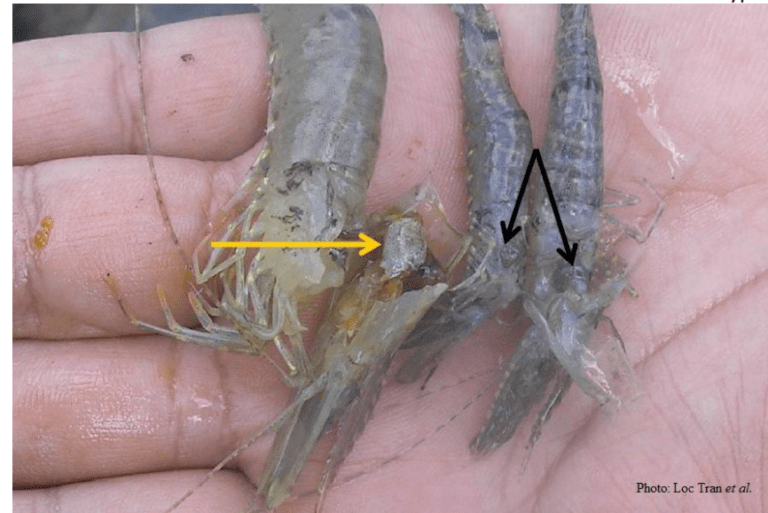Cause
The etiology was determined to be due to a particularly high toxicity strain of Vibrio parhaemolyticus bacteria.
Diagnostic
Diseased shrimps have atrophic pancreatic liver mass, the pancreatic liver is pale to white, shrimp intestines have no food or broken, shrimp are usually soft-shell, the percentage of dead shrimp is high. Black tiger shrimp with EMS are usually dark, slow to grow (similar to MBV rickets) and manifestations on the pancreatic liver are similar to those on the white leg card such as pale color, atrophied pancreatic liver, and intestines with no food.


Prevention
Choose good, healthy varieties. Check the density of Vibrio bacteria in pond water, in soil and on shrimp to make sure that the density of Vibrio is always at a safe level. It is paired with turbot or other fish species, forming a population of beneficial microorganisms (algae and bacteria) in the pond to suppress the group of Vibrio bacteria growing (they will compete for nutrition, habitat,…with pathogenic bacteria). Can be farmed on a rotational basis, the main shrimp farming then other objects such as rafters,… If we want sustainable and long-term shrimp farming, we should keep antibiotic use to a minimum!

 Tiếng Việt
Tiếng Việt Indonesia
Indonesia